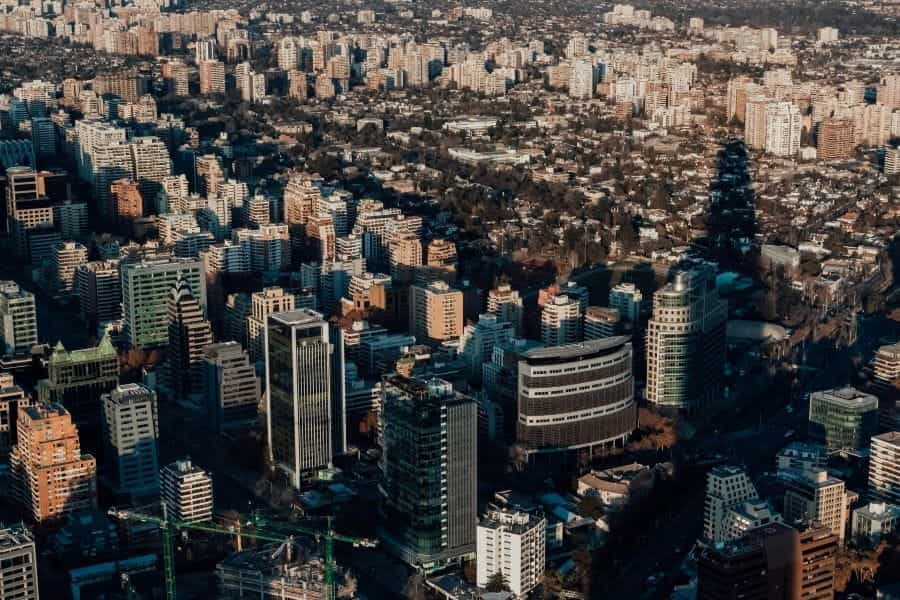Turmoil In Chile Over Gambling Regulations
In the last week, outcry has erupted in Chile over what some perceive to be the local regulatory body’s failure to live up to the process it had promised. In statements both from the Chilean Casino Association and the BOLDT Peralada group, the decision made by Chile’s regulatory body, known as the Superintendencia de Casinos de Juego, to change its licensing process flies in the face of investments made by both companies toward a robust gambling future for the Latin American country.

Chile’s SCJ is under fire after a number of controversial decisions. ©Caio Silva/Unsplash
In a televised address entitled “Don’t Play with the Law,” Chile’s casino organization criticized the country’s official gambling regulator, the Superintendencia de Casinos de Juego, or SCJ, for instituting a novel casino licensing process that it believes is illegal. And they’re not the only ones angry.
A short time before the statement from the Chilean Casino Association, BOLDT Peralada group director Ricardo Ablada also critiqued the SCJ for its new law. Ablada responded to the new laws with confusion and frustration, noting that the SCJ’s new proposed law directly contradicts previously established laws and business partnerships.
The Law Before: Fertile Ground for A Robust Industry
Prior to the new decision made by the Superintendencia de Casinos de Juego, companies were entitled to favorable conditions to bid in Chile. These conditions included allowing such companies to operate for fifteen years, with a possibility to renew these contracts for an additional fifteen years should enough impact be made.
The main gripe of both BOLDT Peralada and the Chilean Casino Association is that, following these guidelines, both invested heavily in growing their presence in Chile. For the Chilean Casino Association, the total sum equalled something close to $1,400 million (USD) toward casino and touristic infrastructure.
Similarly, BOLDT Peralada director Ricardo Ablada stated that his company invested close to $70 million (USD) in establishing its presence in a relatively small Chilean city. According to Ablada, this decision was made with the intention to work hand in hand with the community to cater directly to this community’s needs and interests.
Now, the SCJ is proposing a change to these licensing agreements in violation of the rules agreed upon by these parties. As such, the SCJ is mandating that companies or gambling industry bodies may only renew their licenses depending on existing market supply in the country, rather than the much more lenient 15-year cycles initially proposed.
Complaints Fall on Deaf Ears
Unfortunately for those protesting the SCJ’s controversial decision, the regulatory body of Chile has been entirely unresponsive to the repeated and emotional pleas to reconsider from companies which have heavily invested in the Latin American country. As of now, it does not seem that a reversal on this position is anticipated in the near future.
The SCJ Continues To Make Controversial Decisions
It’s looking like these are not going to be easy weeks for the people working for the SCJ. This week, the organization received repeated criticism due to its decision to allow an online casino, Enjoy, to proceed with their activities legally. The ruling on the part of the SCJ was swiftly critiqued by a local gambling addiction awareness and support group.
Simultaneously, others within Chile’s gambling industry implied that the SCJ’s work to legalize Enjoy casino’s online activities dovetailed with its changing rules about licensing and renewals for businesses in the country. According to Rodrigo González, deputy of the Comisión Investigadora de Casinos, foul play may be involved.
González decried the decision, stating that it was looking likely that such businesses as Enjoy were influencing the behavior of the Superintendencia de Casinos de Juego, implying corruption. In the eyes of González, this would continue to have implications for further legislation down the line.
Gambling in Chile Is in Flux
This debate comes just a short time after gaming industry members in Chile petitioned the government to consider formally legalizing online gambling for brick-and-mortar casinos which suffered greatly under forced closures related to the coronavirus pandemic, beginning March 18.
According to industry members in June, when the requests to consider legalizing online gambling for affected business were first mentioned, it was speculated that Chile’s casinos would likely be feeling the hurt from these forced closures for the next year and a half. Enjoy, the casino granted a license by the SCJ, cited losses of more than $11.3 million.
Gaming and the Government: A Difficult Dance
The work to reopen casinos is weighted further by the ongoing relationships between the gambling industry and the local government. Some of Chile’s casinos are, in fact, run by local governments within the country, and the revenue from these businesses can fuel more than half of the region’s operating budgets.
As such, the work to regulate in response to closed casinos — which are affecting not just private businesses, but also many Chilean areas, due to their dependence on casino revenue — means that all parties have to be intentional in how additional regulations are unfurled.
Some members of the local government, such as Chile’s Undersecretary of Finance, Francisco Moreno, predicted that indelicate approaches to the licensing process could leave regions trapped with unfavorable conditions for 15 years — the cycle, at one time, of Chile’s gaming business licenses.
Additionally, Moreno proposed that the income tax percentage to be paid by casinos should increase. Right now, this rate is set at 20% of a casino’s gross income tax revenue. Moreno believes that that number should be raised to 25%, and that casinos could have iGaming options, so long as they’re carefully monitored to remain within a certain geographic area.



